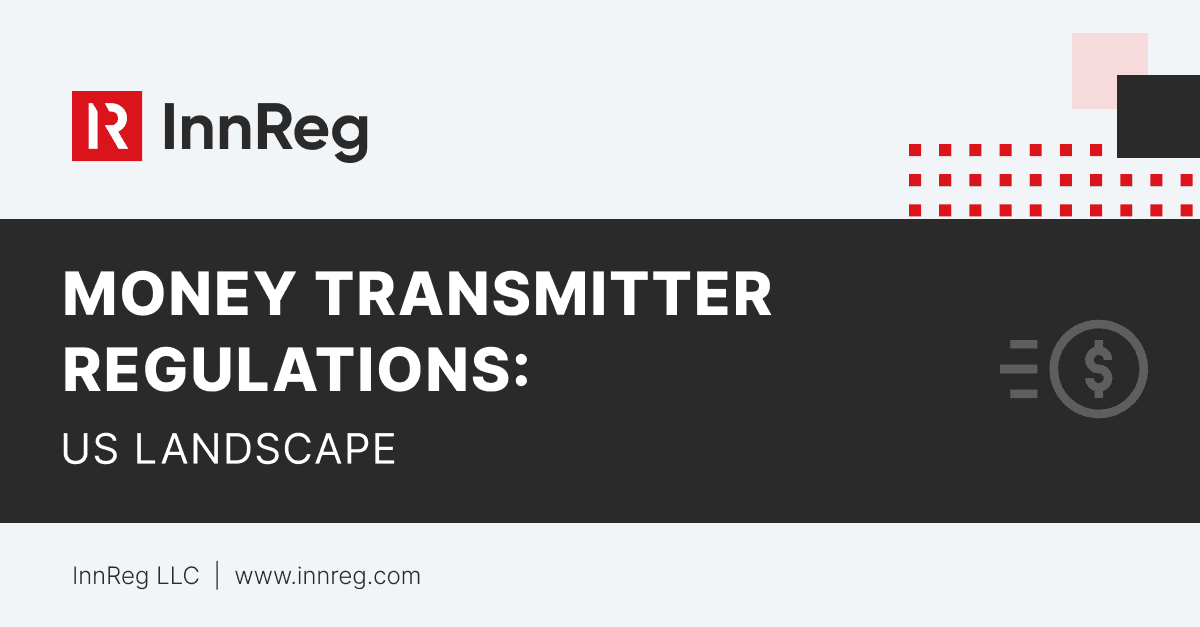Contents
Traditionally, licensed money transmitters have been responsible for money transmission in the U.S. They relied on authorized delegates to act as agents for collecting and disbursing cash and monetary instruments. But in recent years, the widespread use of mobile and Internet technology have fundamentally changed the equation.
Today, customers demand digital tools such as mobile wallets to manage payments. Technology companies have capitalized on this shift by offering free or low-cost bank account substitutes to reach a wider range of previously underbanked consumers.
However, this shift must also contend with increasing regulation at both the federal and state level. Unlike federal regulation, state money transmitter laws are meant to promote a wide variety of sometimes conflicting policy objectives, such as growing the financial industry, consumer protection, and anti-money laundering initiatives, creating a significant bottleneck in bringing innovative and customer-driven solutions to the market.
This results in potential compliance missteps, which have increasingly come to the fore as a key risk issue for money transmitter firms.
See also:

InnReg is a global regulatory compliance and operations consulting team serving financial services companies since 2013. If you need assistance with compliance or fintech regulations, click here.
Recent Consent Orders against Money Transmitters
In this perspective, recent enforcement actions by the U.S. Consumer Financial Protection Bureau (CFPB) reflect a sweep of regulatory focus to address violations of the Remittance Transfer Rule, the key regulation impacting money transmitters that requires, amongst others, procedures around error resolution, cancellation and refunds as well as disclosures.
In August 2020, the CFPB entered into settlements with Trans-Fast Remittance LLC and Sigue Corporation, two remittance transfer providers, for violations of the Electronic Fund Transfer Act and the Remittance Transfer Rule. In both cases, the CFPB’s investigation found failures in a number of critical compliance components, namely:
Gaps in the maintenance of a suitable compliance program with the necessary policies and procedures to evidence compliance with regulations;
Adherence to error resolution requirements;
Proper response to cancellation requests and provision of reunds;
Lack of disclosures.
Read more: FDIC Bank Consent Orders
Trans-Fast Consent Order
The consent order against Trans-Fast required it to pay a $1.6 million civil money penalty and to adopt a compliance plan to ensure that its remittance transfer acts and practices comply with applicable Federal consumer financial laws and the consent order.
Sigue Corporation Settlement
In its settlement with Sigue Corporation, the CFPB required Sigue to comply with the Remittance Rule, develop a compliance plan, include its Board of Directors in consent order compliance, and pay approximately $100,000 in consumer redress and $300,000 in civil money penalty for its violations of the EFTA and Remittance Rule.
They must also maintain a compliance program and implement written policies and procedures designed to ensure compliance with the Remittance Transfer Rule, including conducting training and oversight of all agents, employees, and service providers.
Asure Software CT Consent Order
More recently, in December 2021, Asure Software was forced to stop its money transmission operation after having entered into a Consent Order in the state of Connecticut for operating at a time when their license application was still pending. In its 10K regulatory filing, the company argued that the expansion of certain states' interpretation of state money transmission and money service business statutes to include these standard payroll processing activities necessitated the registration as a money transmitter.
Regulatory Approaches for Money Transmitters
While the Uniform Money Services Act is the best hope for a unified regulatory regime, its adoption has been slow, with only seven states and two territories having enacted it. State regulations are a challenging trifecta of broad money transmitter definitions, expansive jurisdictional assertions, and inconsistent approaches to exemptions. With access to financial services shifting to mobile platforms, startups have to be prepared to serve consumers from far-flung states and comply with a unique set of regulations in each state.
In response, some state regulators are participating in initiatives to improve the efficiency of the money transmitter licensing and examination process, for example through the creation of sandboxes intended to enable entities to test new Fintech products and services in the marketplace without the need to obtain licenses.
To provide a uniform regulatory structure and avoid the requirement of state-by-state licensure, the Office of the Comptroller of the Currency (OCC) has also moved to issuing special purpose national bank charters to qualifying fintech entities that would benefit from federal preemption of state lending and money transmission licensing requirements.
Conclusion: How Can Money Transmitters Effectively Manage Compliance Risks?
As evidenced by the regulatory challenges experienced by money transmitters, fintech in the U.S. continues to be challenged by inconsistent regulatory expectations and the struggle to adapt often dated regulatory frameworks to ever innovative business models.
While there are some similarities in language and requirements among the states under both credit and money transmission regulation, there are also many state-by-state nuances, which cumulatively require a very robust compliance programme that takes into account how the entity is structured, the types of products or services it offers, and the particular jurisdictions it operates in.
InnReg can help formulate your optimal structure and articulate your unique business profile to regulators. As an outsourced compliance provider, we can help you with the following key components of a compliance program:
KYC, AML, and Customer Due Diligence,
Suspicious Activity Reporting,
Fraud prevention,
Red flag programs,
Information security and data protection,
Marketing and advertising compliance,
Compliance governance and risk assessment, and
Staff compliance and training.
How Can InnReg Help?
InnReg is a global regulatory compliance and operations consulting team serving financial services companies since 2013.
We are especially effective at launching and scaling fintechs with innovative compliance strategies and delivering cost-effective managed services, assisted by proprietary regtech solutions.
If you need help with money transmitter compliance, reach out to our regulatory experts today:
Published on Mar 13, 2022
Last updated on Dec 21, 2023
Related Articles
Latest LinkedIn Posts













